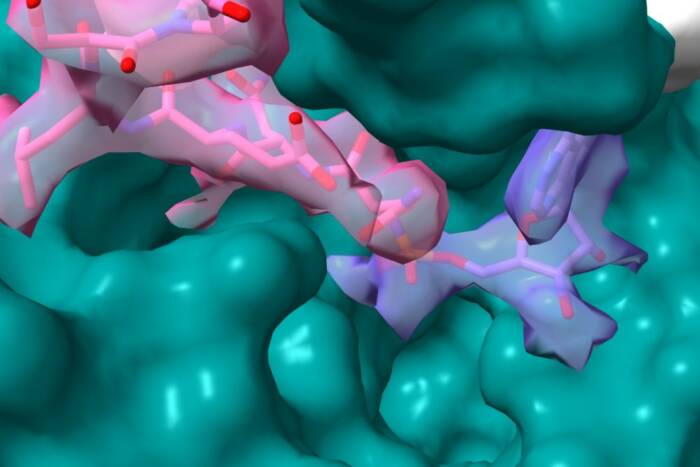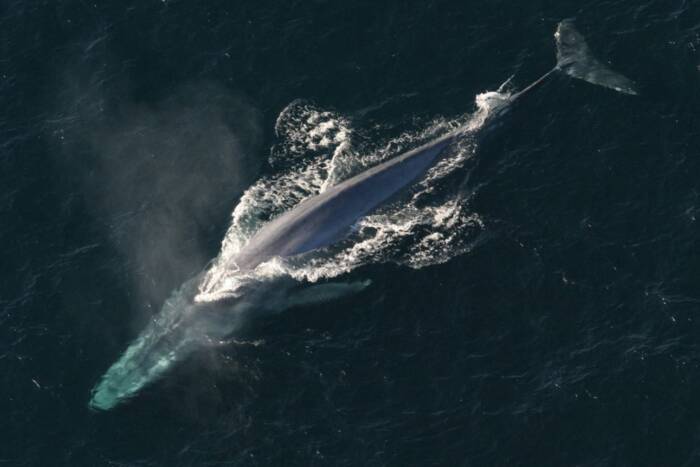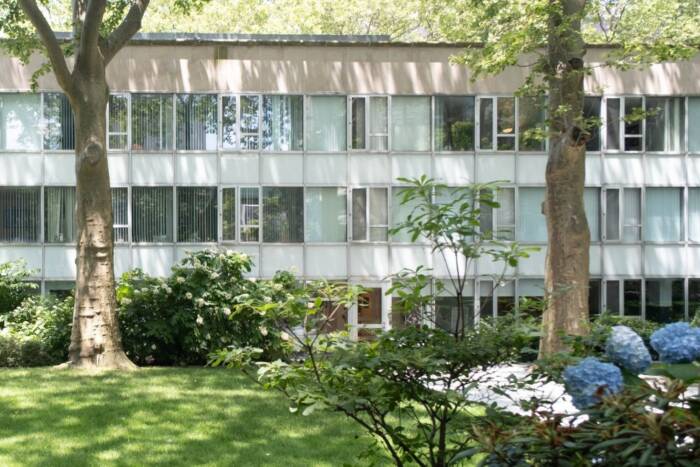Bard College And Rockefeller University Establish New Collaborative Programs In Science Education
 ANNANDALE-ON-HUDSON, N.Y. – Bard College and The Rockefeller University have established a new, ongoing collaborative program in science education, Rockefeller President Arnold Levine and Bard President Leon Botstein announced today.
ANNANDALE-ON-HUDSON, N.Y. – Bard College and The Rockefeller University have established a new, ongoing collaborative program in science education, Rockefeller President Arnold Levine and Bard President Leon Botstein announced today.
The new Bard Rockefeller Program, which starts this year, brings together the strengths of each institution for the benefit of both. The program creates new opportunities for Bard College undergraduates to study the sciences at one of the world’s premier research universities, while attending one of the nation’s top liberal arts colleges. At the same time, Rockefeller University benefits from this unique collaboration by the enrichment of the Rockefeller campus with undergraduates and liberal arts faculty who bring a different perspective to learning, teaching, and research.
Rockefeller University will offer a course to Bard students relating to scientific inquiry and its impact on society. The first course, offered for the fall 2000 semester, will be a seminar entitled “Bacteria, Viruses and Cancer: Perspectives on Human Disease,” taught by Rockefeller President Arnold J. Levine, Dean Sidney Strickland, Dr. Terry Gaasterland, and Dr. Betsy Hanson. Fifteen first- and second-year Bard undergraduates will travel once a week to Rockefeller University for dinner and the three-hour seminar.
Other key elements of the Bard Rockefeller Program include the following:
- Bard students will have places reserved for them in Rockefeller’s Summer Undergraduate Research Fellows (SURF) program, under which college students work in Rockefeller research labs and are provided room and board on the Rockefeller campus, along with a summer stipend.
- Bard faculty, current and newly recruited, will have the chance to obtain adjunct status at Rockefeller, enabling them to participate in research projects in Rockefeller laboratories.
- Bard’s Institute for Writing and Thinking will work with Rockefeller’s Precollege Science Outreach Programs to offer further opportunities for secondary school students and teachers. This collaboration also will play a role in the development of the science component of Bard’s planned Master of Arts in Teaching (MAT) program.
- Rockefeller University graduate students and postdoctoral fellows will have the opportunity to gain teaching experience at Bard.
- First-year graduate students at Rockefeller may be taught an introductory computer sciences course by the Bard faculty.
- Bard faculty will support Rockefeller’s recruitment of graduate students by facilitating contacts with teachers and students from Bard’s consortium of liberal arts colleges.
In addition, Bard will explore the possibility of holding a Clemente Humanities “bridge” course at Rockefeller University, in conjunction with Bard’s Clemente Course program, on the topic “Science and Society. Bridge courses are designed for graduates of the Clemente Course who can profit from a further college-level course before entering college on a full-time basis.
Terry Gaasterland, Ph.D., an assistant professor at Rockefeller University and recently appointed specialist in computational biology, will join Bard’s committee of outside advisors to provide advice on Bard’s science initiative, including the recruitment of faculty in the area of computational biology. This committee, chaired by Nobel laureate Stanley Prusiner, M.D., professor of neurology, University of California, San Francisco; also includes George Rose, Ph.D., professor of biophysics, Johns Hopkins University; David Botstein, Ph.D., professor and chair of genetics, Stanford University; and John Ross, Ph.D., professor of chemistry, Stanford University.
The Bard Rockefeller Program will be administered by a joint committee consisting of science professors and a representative of the senior administration from each institution. Rockefeller University will be represented by Gaasterland; Sidney Strickland, Ph.D., dean and vice president for Educational Affairs; Bonnie Kaiser, Ph.D., director of the Science Outreach Program; and Alice Lustig, executive vice president. Bard’s committee members will be Robert Martin, Ph.D., dean of Graduate Studies; Matthew Deady, Ph.D., professor of physics; and Michael Tibbetts, Ph.D., professor of biology.
“This unique arrangement between Bard College and the Rockefeller University demonstrates how contrasting institutions of distinction can collaborate to create new opportunities for their students and faculty,” says Bard College President Leon Botstein. “The creativity shown by The Rockefeller University and the program’s advisory committee point to new paths for institutional cooperation and the development of enthusiasm for science among future college students.”
Rockefeller President Arnold J. Levine agrees that both institutions will benefit greatly from the arrangement. “The Bard Rockefeller Program will allow for extensive consultation between those with scientific and liberal arts backgrounds, enriching the perspectives of all involved,” he says. “Bard students and faculty will interact with leading scientists, and Rockefeller will have the opportunity to expand and extend its outreach to small prestigious colleges.”
Bard College is an independent coeducation college of the liberal arts and sciences dedicated to promoting a rigorous education through innovative programs and high academic standards. The College, located 90 miles north of New York City, offers undergraduate degrees in the arts, languages and literature, social studies, and natural sciences and mathematics, as well as graduate degrees in the arts, environmental studies, curatorial studies, and graduate and postgraduate degrees in the history of the decorative arts. Bard College is also home such research institutions as the Jerome Levy Economics Institute and the Bard Center for Environmental Policy, and the Center for Curatorial Studies Museum. The Bard Performing Arts Center, designed by Frank O. Gehry, is scheduled to open in 2002.


